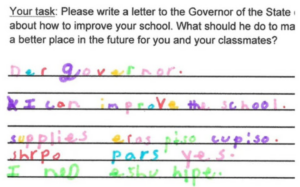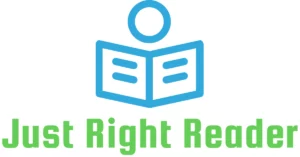
Just Right Reader decodables empower students to experience equitable learning through culturally relevant, engaging texts, which induce a love of reading and an authentic sense of belonging in a global society. Additionally, our robust set of titles offers inclusive learning opportunities to students through fictional and informational text, proven to be the best way for students to learn to read. We have more than 450 titles in our library. We’ve partnered with literacy experts Dr. Ray Reutzel, Ph.D., and Dr. Heidi Anne Mesmer, who have endorsed our decodables, helped develop classroom routines for teachers, and ensured our decodables meet the criteria to support student success in reading! Just Right Reader decodables are used by school districts in 48 states in the U.S. and Canada.
Education is a constitutional right, but several students felt it was not being fulfilled after falling behind on reading assessments. In 2017, this led to 10 young readers filing and winning a class action lawsuit against their state for failing to provide adequate literacy instruction.
The Problem
Teachers, especially in underserved and minority communities, require more resources and support. Often, they’re handed materials that don’t align with research or are provided evidence-based materials and not told how to use them.
 This gap resulted in students scoring in the <1 percentile on reading assessments for years with minimal intervention. Goldberg, the founder of the Right to Read project, monitored the reading scores of a fifth grader named Clark and found they improved with extra help. However, Clark’s teacher lacked the resources to offer the additional systematic instruction needed for Clark to read proficiently.
This gap resulted in students scoring in the <1 percentile on reading assessments for years with minimal intervention. Goldberg, the founder of the Right to Read project, monitored the reading scores of a fifth grader named Clark and found they improved with extra help. However, Clark’s teacher lacked the resources to offer the additional systematic instruction needed for Clark to read proficiently.
The phonics program Clark’s teacher was given included “loose mini-lessons, practice with leveled books, and reading aloud,” which wasn’t enough to help Clark read comfortably. In contrast, Clark’s first-grade teacher had incorporated explicit phonics instruction, one-on-one help, and practice with decodables. With extra practice and science-backed reading lessons, Clark’s reading improved. Unfortunately, not all the teachers in his school had the resources to provide this.
The Solution
Stories like Clark’s are why the money from the lawsuit didn’t go to the plaintiffs. The 53 million dollar settlement went directly to the 75 lowest performing schools in the state to rework early reading education programs and professional development. Each school developed a unique plan for improving literacy rates and reading assessment scores.
These plans were generally structured in these steps:
- Screen for struggling readers early
- Look at the data to learn where improvements need to be made
- Disaggregate the data so you can see what’s working for each student
- Carry out a curriculum audit to find areas for improvement
- Come up with an action plan
- Explain to others what you are doing and why
The plans also focused on providing science-backed reading tools such as a phonics scope and sequence, explicit lesson plans, and teacher training on implementing these lesson plans.
Just Right Reader’s decodables align to all phonics programs, making it easy for districts to add supplemental phonics into their core curriculum! Teacher resources, including robust lesson plans, quick start guides, and curriculum alignment charts, make this transition as smooth as possible. Each decodable follows a rigorous phonics progression backed by the latest Science of Reading research, helping students as they progress from phonemic awareness to reading multisyllabic words.
Are you interested in adding our Science of Reading decodables into your school’s reading programs? Email us at Schools@JustRightReader.com or purchase our Science of Reading decodables here!
Contact your dedicated Account Manager:
Julianne DeMartino 
Business Development
julianne@justrightreader.com
415-209-5869
